第18章
In ancient Greece, in its superb and virile youth, its womanhood was richly and even heavily endowed with duties and occupations.Not the mass of the woman alone, but the king's wife and the prince's daughter do we find going to the well to bear water, cleansing the household linen in the streams, feeding and doctoring their households, manufacturing the clothing of their race, and performing even a share of the highest social functions as priestesses and prophetesses.It was from the bodies of such women as these that sprang that race of heroes, thinkers, and artists who laid the foundations of Grecian greatness.These females underlay their society as the solid and deeply buried foundations underlay the more visible and ornate portions of a great temple, making its structure and persistence possible.In Greece, after a certain lapse of time, these virile labouring women in the upper classes were to be found no more.The accumulated wealth of the dominant race, gathered through the labour of slaves and subject people, had so immensely increased that there was no longer a call for physical labour on the part of the dominant womanhood; immured within the walls of their houses as wives or mistresses, waited on by slaves and dependents, they no longer sustained by their exertion either their own life or the life of their people.The males absorbed the intellectual labours of life; slaves and dependents the physical.For a moment, at the end of the fifth and beginning of the fourth century, when the womanhood of Greece had already internally decayed, there was indeed a brilliant intellectual efflorescence among her males, like to the gorgeous colours in the sunset sky when the sun is already sinking; but the heart of Greece was already rotting and her vigour failing.Increasingly, division and dissimilarity arose between male and female, as the male advanced in culture and entered upon new fields of intellectual toil while the female sank passively backward and lower in the scale of life, and thus was made ultimately a chasm which even sexual love could not bridge.The abnormal institution of avowed inter-male sexual relations upon the highest plane was one, and the most serious result, of this severance.The inevitable and invincible desire of all highly developed human natures, to blend with their sexual relationships their highest intellectual interests and sympathies, could find no satisfaction or response in the relationship between the immured, comparatively ignorant and helpless females of the upper classes, in Greece, and the brilliant, cultured, and many-sided males who formed its dominant class in the fifth and fourth centuries.Man turned towards man; and parenthood, the divine gift of imparting human life, was severed from the loftiest and profoundest phases of human emotion: Xanthippe fretted out her ignorant and miserable little life between the walls of her house, and Socrates lay in the Agora, discussing philosophy and morals with Alcibiades; and the race decayed at its core.
(See Jowett's translation of Plato's "Banquet"; but for full light on this important question the entire literature of Greece in the fifth and fourth centuries B.C.should be studied.) Here and there an Aspasia, or earlier still a Sappho, burst through the confining bonds of woman's environment, and with the force of irresistible genius broke triumphantly into new fields of action and powerful mental activity, standing side by side with the male; but their cases were exceptional.Had they, or such as they, been able to tread down a pathway, along which the mass of Grecian women might have followed them; had it been possible for the bulk of the women of the dominant race in Greece at the end of the fifth century to rise from their condition of supine inaction and ignorance and to have taken their share in the intellectual labours and stern activities of their race, Greece would never have fallen, as she fell at the end of the fourth century, instantaneously and completely, as a rotten puff-ball falls in at the touch of a healthy finger; first, before the briberies of Philip, and then yet more completely before the arms of his yet more warlike son, who was also the son of the fierce, virile, and indomitable Olympia.(Like almost all men remarkable for either good or evil, Alexander inherited from his mother his most notable qualities--his courage, his intellectual activity, and an ambition indifferent to any means that made for his own end.Fearless in her life, she fearlessly met death "with a courage worthy of her rank and domineering character, when her hour of retribution came";and Alexander is incomprehensible till we recognise him as rising from the womb of Olympia.) Nor could she have been swept clean, a few hundred years later, from Thessaly to Sparta, from Corinth to Ephesus, her temples destroyed, her effete women captured by the hordes of the Goths--a people less skilfully armed and less civilised than the descendants of the race of Pericles and Leonidas, but who were a branch of that great Teutonic folk whose monogamous domestic life was sound at the core, and whose fearless, labouring, and resolute women yet bore for the men they followed to the ends of the earth, what Spartan women once said they alone bore--men.